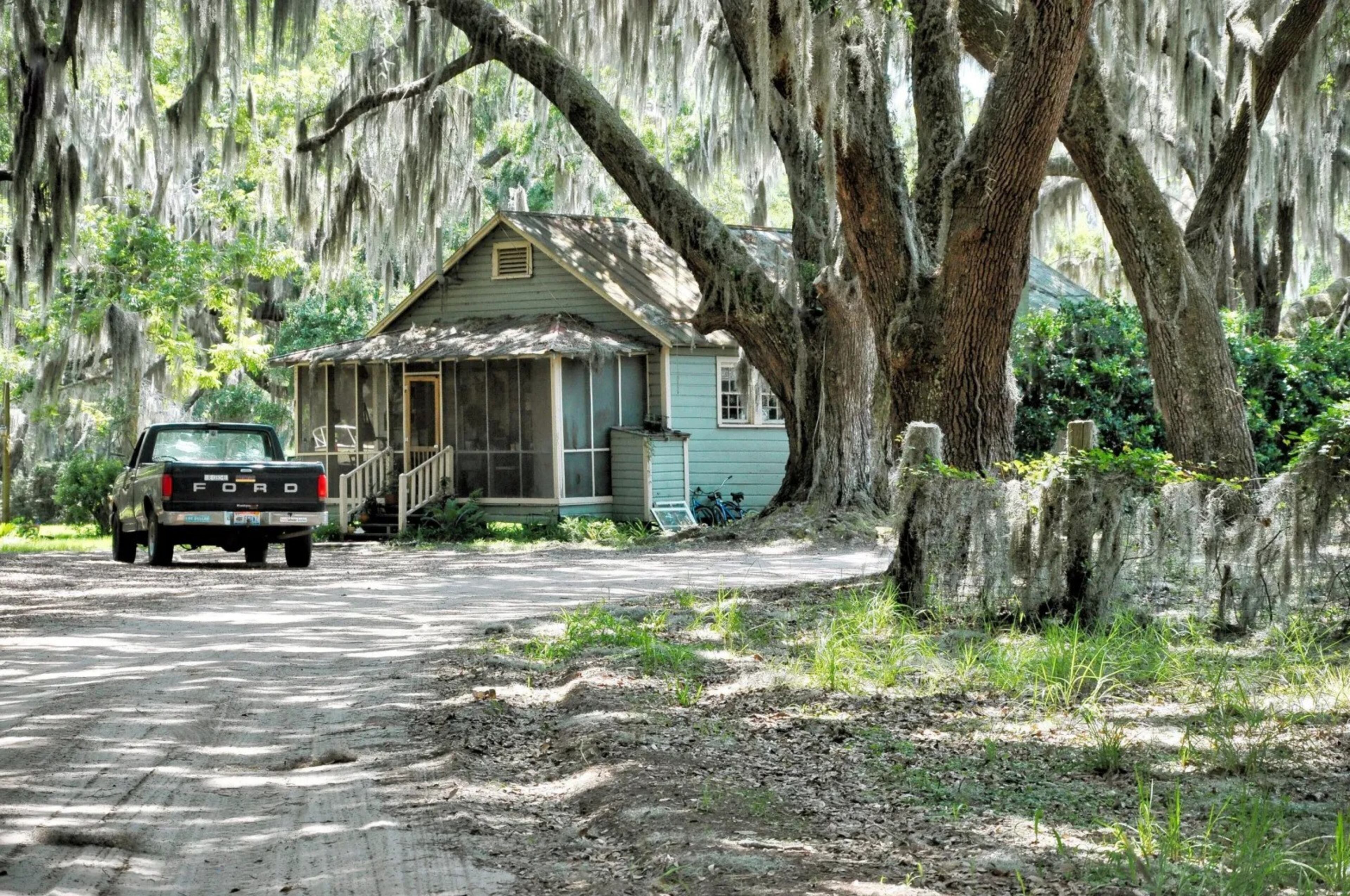Judge halts Sapelo Island zoning referendum in blow to Gullah Geechee residents
The Sapelo property zoning voter referendum has been halted by a judge’s order, ending for now an attempt by the Gullah Geechee residents of the remote coastal Georgia island to repeal a year-old ordinance that opened their community, known as Hog Hammock, to larger dwellings.
The ruling by Superior Court Judge Gary McCorvey is likely to be appealed.
Early voting in the Oct. 1 special election was already underway, with more than 600 ballots cast. McIntosh County filed a lawsuit challenging the referendum in July, and McCorvey heard legal arguments in the case Friday. He sided with the county, which argued the referendum was illegal under the state constitution and the county should not expend funds to run the election.
The election’s suspension comes at a time when development interest in the island is gaining momentum. Significant expansion of two houses is already underway, islanders say, and the recent high-dollar sales of two others — a 1,518-square-foot residence sold for $800,000 in April and a 900-square-foot dwelling went for $500,00 last December — has stoked worries that more remodeling could follow.

Additionally, building permit records show four applications for new residences have been approved since the zoning ordinance change. One of those houses is to measure 2,133 square feet, much larger than the other homes on the island that were built when the ordinance limited dwellings to 1,400 square feet. Sapelo’s revised zoning standards allow dwellings up to 3,000 square feet.
None of the building permit applicants replied to communications seeking information on the plans for their homes.
“They’re building and there’s more coming,” said Chris Bailey, a Gullah Geechee resident and one of the organizers behind a signature petition drive that led to the referendum. “One house is getting a second story put on. That’s a major project.”
The 1,400-square-foot zoning mandate was meant to protect the oceanfront island’s 434 privately owned acres from development and preserve the way of life of the Gullah Geechee, who are descendants of enslaved West Africans who worked Sapelo’s plantations before emancipation and the Civil War.
Approximately 35 Gullah Geechee residents still live full time on Sapelo, although undeveloped properties and several of the 83 housing units on the island, as cited by the U.S. Census Bureau, are now owned by nondescendants, property records show.
Much of the privately owned properties are located on the interior of the island, but a handful have water views. Additionally, Sapelo is only 3.1 miles wide at its widest point, giving property owners easy access to the island’s beaches on foot or via bicycle or golf cart and spurring interest from purchasers.
“It's going to be a long fight; they hope to wear us out, for us to get tired of worrying about what happens if we lose. Me, I'm not afraid of losing something, so I'll keep right on fighting."
The increasing number of non-Gullah Geechee property owners — and their interest in roomier homes — was cited by the McIntosh commissioners as a reason for the ordinance change. At the September 2023 meeting where the law was amended, the commission’s chairman, David Stevens, blamed the Gullah Geechee for necessitating the zoning change by selling Hog Hammock properties to nondescendants. He added that the current generation of Gullah Geechee lack the cultural appreciation shown by their ancestors.
“This next new generation doesn’t have it, nor will they ever,” he said during the meeting.
The referendum was the current Gullah Geechee residents’ rebuttal to Stevens’ assessment. More than 2,300 McIntosh residents signed the petitions to force the referendum. McIntosh has more than 10,200 registered voters.
Sapelo resident Maurice Bailey, whose family has called the island home for nine generations, said the Gullah Geechee’s fight against development will continue. Even if McCorvey’s ruling is overturned on appeal and the referendum eventually succeeds, he anticipates future legislative actions by the McIntosh Commission meant to turn the island into an enclave for vacation homes.
“It’s going to be a long fight; they hope to wear us out, for us to get tired of worrying about what happens if we lose,” Bailey said. “Me, I’m not afraid of losing something, so I’ll keep right on fighting.”
More Stories
The Latest



